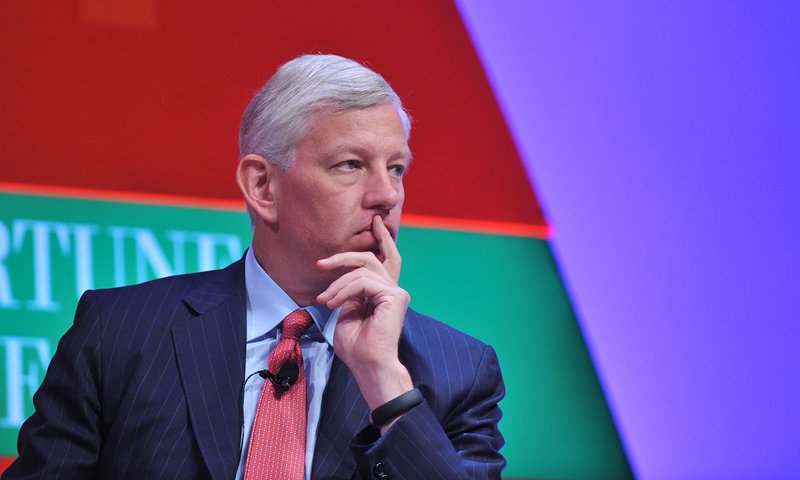Dominic Barton
Canadian Ambassador to China Dominic Barton’s resignation was seen by Chinese observers as coming amid growing domestic criticism for his stand of developing positive ties with China and pressure from the US, and observers said that the premise for improving China-Canada ties was that Canada abandons its political bias against China and drops any potential thought of following the US’ “diplomatic boycott” of the Beijing Winter Olympics.
CBS News reported that Barton announced his resignation in a statement on Monday, saying that the release of the two Michaels was his “core priority” when he was appointed.
Canadian Prime Minister Justin Trudeau said in a statement issued the same day that he accepted Barton’s decision to leave his post in Beijing at the end of the year.
The Canadian embassy in China confirmed with the Global Times the ambassador’s resignation.
In an interview with the Toronto Star, Barton said that his leave was a “personal decision,”unrelated to any policy decisions by the Canadian government on issues such as Chinese tech giant Huawei’s development in Canada, and Canada’s participation in the Beijing Winter Olympics. He said Canada should continue to engage with China.
Barton told the Global Times in a previous interview that the release of Huawei’s Meng Wanzhou solved “major issue” in bilateral relations and expressed hope for better ties.
Two Canadians, Michael Kovrig and Michael Spavor, confessed their guilt for crimes they committed in China and were released on bail for medical reasons before they left China on a plane to Canada in late September.
Yao Peng, deputy secretary-general of the Canadian Studies Center of the Chinese Academy of Social Sciences, told the Global Times on Tuesday that Barton’s leave came at a time when it was difficult for him to exert his diplomatic philosophy of putting equal emphasis on trade and political relations with China with the US’ growing pressure and the negative attitude of the Liberal Party in Canada toward China.
Observers said Barton was familiar with China before his appointment as ambassador. He had worked for McKinsey, during which he stayed in Shanghai in the 2000s and was given the Shanghai Magnolia Gold Award for his contributions.
But Canadian politicians wanted him to move forward with bilateral relations but did not want to shoulder any responsibility out of fear of losing their electoral interests, observers said, noting that it made Barton exhausted.
Canadian media has often criticized Barton for “strongly pushing closer” trade ties with Beijing.
Barton said that it’s critical for Canadian firms to seize opportunities in a rising China, the National Post reported on October 12, shortly after the release of Meng. But in the same report, it also said some critics “voiced dismay” at Barton’s call for business to engage in Beijing.
Even though Meng’s case has been resolved, Barton’s departure has cast a shadow on the development of China-Canada relations, Yao said.
“The premise of further improving China-Canada relations is that the current Canadian government abandon its political bias against China, completely cast away the thought of following the US to stage a so-called diplomatic boycott of the Beijing Winter Olympics,” Yao said.
Yang Xiyu, a former Chinese diplomat and senior research fellow at the China Institute of International Studies, told the Global Times that Barton’s resignation was partly because he has no choice as it was difficult for him to realize his political targets given the Canadian political environment and current China-Canada relations.
China-Canada relations are at a delicate and sensitive period, and it is crucial for Barton’s successor to have an objective, rational and correct view of China, and make political judgment based on Canada’s interests rather than the interests of the US, Yang said.
Global Times




